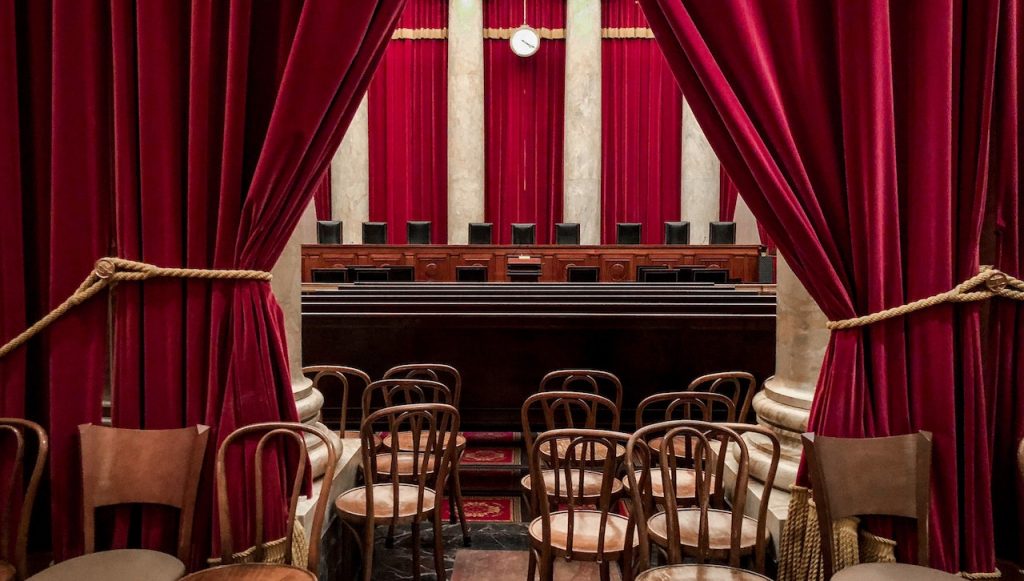Amy Coney Barrett, “Court Packing,” and the Future of the Supreme Court
Stephen Henderson speaks with court watchers about who Coney Barrett is and how she might shape the Supreme Court.

If you’ve been paying any attention to the news in recent weeks, you’ve likely heard the term “court packing.”
Simply put, it’s an idea being floated by some Democrats that would expand the U.S. Supreme Court to more than nine seats.
“Women — especially liberal women, especially feminists — are looking for a woman on the court that they feel will support their right to live their own lives.” — Monica Hesse, Washington Post
It sounds like a radical or controversial idea, but it’s actually happened in American history before — first back in the 1860s and then another attempt in the 1930s.
The idea comes after President Donald Trump and his Republican allies in the U.S. Senate announced intentions to fill the seat left vacant by late Supreme Court Justice Ruth Bader Ginsburg. Trump’s nominee, U.S. Court of Appeals judge Amy Coney Barrett, is controversial due to her originalist judicial philosophy and her past stances on issues such as reproductive rights.
Listen: Stephen Henderson speaks with court watchers about the future of the U.S. Supreme Court.
Guests
Dahlia Lithwick writes about the courts and the law for Slate and hosts the podcast “Amicus.” She says the term “court packing” is most famously associated with former President Franklin Delano Roosevelt, who threatened but did not end up “packing” the Supreme Court. But she says that threat caused the court to “modify its behavior.”
“I think a little bit of the conversation we’re having right now is less about structurally seating five, seven, nine more justices, a little but more about sending up a flare to the court that a Supreme Court that strikes down all progressive legislation if Biden takes the presidency is going to be a problem,” Lithwick tells Stephen Henderson on Detroit Today.
Monica Hesse is a Washington Post columnist who wrote a piece titled “Amy Coney Barrett is a strong woman. That doesn’t make her a feminist icon.”
“The question is not who is Amy Coney Barrett as a person, and it’s not even what does Amy Coney Barrett believe in her personal life,” says Hesse. “But I think that women — especially liberal women, especially feminists — are looking for a woman on the court that they feel will support their right to live their own lives as they want regardless of whether that matches up with how Amy Coney Barrett would live her life.”
Trusted, accurate, up-to-date
WDET is here to keep you informed on essential information, news and resources related to COVID-19.
This is a stressful, insecure time for many. So it’s more important than ever for you, our listeners and readers, who are able to donate to keep supporting WDET’s mission. Please make a gift today.
